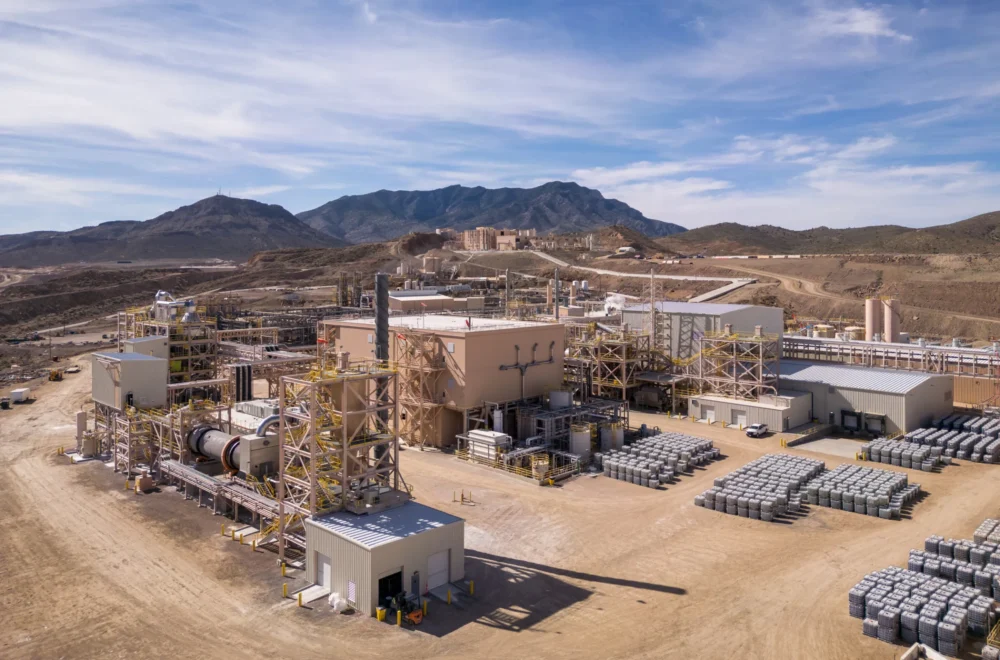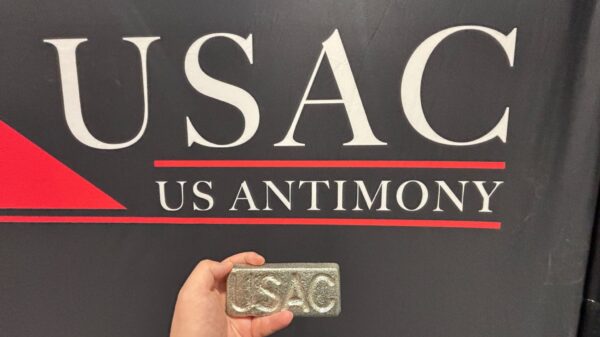MP Materials (NYSE: MP) signed a USD$500 million deal with Apple Inc (NASDAQ: AAPL) to support the production of powerful magnets used in iPhones and other high-tech devices, including electric vehicles.
Announced on Thursday, this came a week after the U.S. Department of Defense committed to investing USD$400 million into MP Materials, solidifying the company’s role in reshoring the American rare earths supply chain.
The Pentagon deal gives the U.S. government a significant stake in the Las Vegas-based company, making it MP Materials’ largest shareholder. In addition to the equity investment, the Defense Department will set a price floor for key rare earth elements and commit to buying all magnets produced at MP’s new Texas facility for the next decade. This move offers revenue stability and market protection amid intense competition from China.
“This is the kind of long-term commitment needed to reshape global rare earth supply chains,” said Neha Mukherjee, a rare earths analyst at Benchmark Mineral Intelligence.
She emphasized that the price guarantees for neodymium and praseodymium will shield MP from China’s state-backed price cuts.
China dominates the rare earths market and has long used its position as leverage during trade disputes. In recent years, it imposed export restrictions following tariffs introduced by former President Donald Trump. When China cut shipments, the two nations held emergency trade talks in London. This history continues to fuel concerns about supply reliability.
Despite their misleading name, rare earth elements aren’t particularly rare.
However, they are rarely found in concentrations high enough to justify mining. Extracting and processing them remains expensive and technically complex.
Read more: NevGold’s latest Nevada drill results show exceptional gold mineralization
Read more: NevGold’s latest drill results extend priority target at Limo Butte by over 200 metres
Mountain Pass cannot meet total of US demand
MP Materials operates the Mountain Pass mine in California’s Mojave Desert.
Even though it provides a critical domestic source of rare earths, it can’t meet the total of US demand. The company is working to change that by expanding its magnet-making capabilities in Texas. The Apple agreement will also help scale this factory, where magnets will be made using recycled materials. Furthermore, MP plans to begin producing magnets for GM’s electric vehicles later this year. Magnet production for Apple is set to start in 2027.
Apple’s deal supports its broader pledge to invest USD$500 billion domestically, a commitment it made during the Trump administration. The government’s backing also offers insulation from market volatility and signals support for building a U.S.-based supply chain.
Mukherjee noted that the Apple agreement will help develop domestic recycling and magnet production. However, she added that it will not provide enough magnets to meet growing demand. More sources of rare earth elements are still needed, especially if the U.S. hopes to reduce reliance on Chinese producers.
In addition, Trump has made reshoring critical materials a top priority. His administration has backed MP Materials and also encouraged the development of additional rare earth mines. Many of these projects will take years to come online, but they are essential for long-term supply security.
However, the truce does not address deeper strategic divides. Both governments continue working to reduce mutual dependency. For MP Materials, this creates both an opportunity and a challenge as it tries to anchor a domestic rare earths industry from the ground up.
Read more: NevGold pulls up even more promising antimony grades from Nevada property
Read more: NevGold raises $5.5M for promising gold-antimony prospects in Nevada
United States has found alternative ways to get critical minerals
The United States has turned to a range of alternative strategies to reduce its reliance on China for critical minerals. One key approach involves sourcing minerals like antimony from third countries, including allies with more stable political ties.
Rather than sourcing antimony directly from high-risk regions, the U.S. has often routed imports through intermediary countries to obscure their origin. Two key transit hubs in this strategy are Vietnam and the United Arab Emirates. Both serve as re-export points, allowing the U.S. to officially import processed or packaged materials without listing the original source—often China or countries under diplomatic scrutiny. This tactic helps reduce traceability while maintaining access to critical minerals.
Additionally, the U.S. government has used policy tools like the FAST-41 program—short for “Fixing America’s Surface Transportation Act, Title 41”—to accelerate permitting timelines for strategic mining projects. One of the first beneficiaries is Perpetua Resources Corp (TSE: PPTA) (NASDAQ: PPTA), which is developing the Stibnite Gold Project in Idaho. The site is one of the only domestic sources of antimony, a critical mineral used in military applications, semiconductors, and energy storage.
In 2023, the Department of Defense awarded the company over USD$24 million to support its antimony development. This move shows a growing willingness to fund dual-purpose mining projects that combine precious and strategic metals.
Other companies are following this model. NevGold Corp (CVE: NAU) (OTCMKTS: NAUFF) (FRA: 5E50), primarily focused on gold, has expanded its scope to explore antimony and other critical minerals across its western U.S. portfolio. The shift positions it to qualify for FAST-41 support, particularly as federal agencies prioritize domestic resilience in critical mineral supply chains.
.
NevGold Corp is a sponsor of Mugglehead news coverage
.













